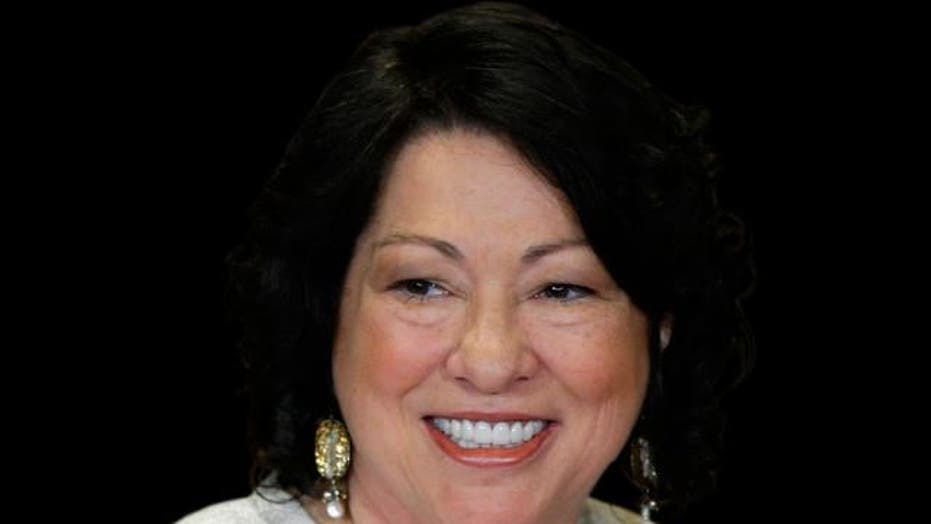Sonia Sotomayor became the first Hispanic Supreme Court justice on Aug. 8, 2009.
In a relatively short time, she has proven herself to be a voice for the underprivileged who often argues for greater protections for people outside the mainstream of power. Sotomayor is also known as a tireless worker and an incisive questioner whose concerns, as Jeffrey Toobin has written, tend “toward the earthbound and practical.”
Here are six signature moments—one for each year she’s been on the nation’s highest court.
Mohawk Industries, Inc. v. Carpenter, Dec. 8, 2009
Sotomayor’s first majority opinion was relatively dull stuff, involving whether a meeting between a company attorney and an employee involved in a dispute over wrongful termination fell under attorney-client privilege. (It doesn’t, although the reasoning is more technical than that.)
The most interesting part is that the employee’s dispute with the company stemmed from comments he had made about the company employing “undocumented immigrants.” Those are Sotomayor’s words, whose written decision avoided the term “illegal immigrants.”
Chamber of Commerce v. Whiting, May 26, 2011
A 5-3 Supreme Court majority upheld an Arizona law that punished companies that hired undocumented workers, tested whether states could, through licensing, effectively supercede federal law.
Sotomayor wrote one of two dissenting opinions, suggesting that the federal Immigration Reform and Control Act was “intended to specifically preempt any state or local laws providing civil fines and/or criminal sanctions on the hiring, recruitment or referral of undocumented aliens.”
J.D.B. v. North Carolina, June 16, 2011
Sotomayor wrote the majority opinion in a 5-4 case about a 13-year-old North Carolina student who was suspected of being involved in a robbery and was questioned at his school. He confessed and was taken into custody without being read his Miranda rights. The fundamental issue being whether the student understood that he was free to leave while being questioned or not.
“To hold … that a child’s age is never relevant to whether a suspect has been taken into custody,” she wrote, is to “ignore the very real differences between children and adults.”
National Federation of Independent Business v. Sebelius, June 28, 2012
Sotomayor joined with the majority in this landmark 5-4 decision that upheld the principal part of the Affordable Care Act (ACA) by declaring that the penalty didn’t qualify as a tax. She did, however, disagree as to the reason why.
Although Sotomayor did not write either the court’s main decision nor a dissent, she was influential during questioning, pursuing the similar provisions that states have requiring drivers to be insured.
Schuette v. Coalition to Defend Affirmative Action, Apr. 22, 2014
In what is currently seen as Justice Sotomayor’s defining moment, she wrote a lengthy, impassioned (by Supreme Court standards) dissent of the 6-2 ruling upholding a ban on affirmative action practices in admission to public universities in Michigan.
“As members of the judiciary tasked with intervening to carry out the guarantee of equal protection,” she wrote, “we ought not sit back and wish away, rather than confront, the racial inequality that exists in our society. It is this view that works harm, by perpetuating the facile notion that what makes race matter is acknowledging the simple truth that race does matter.”
Follow us on twitter.com/foxnewslatino
Like us at facebook.com/foxnewslatino





